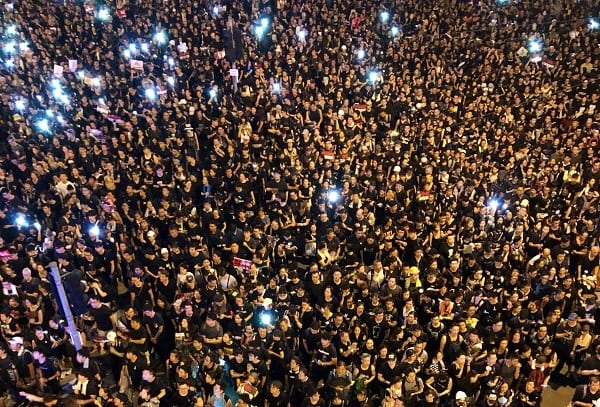Below is a quick explainer on the situation, including the woman at the centre of it all, Hong Kong Chief Executive Carrie Lam.
Who is Carrie Lam?
Carrie Lam is Hong Kong’s first female leader. She was elected in 2017 after winning 777 votes of the 1194 members in the Election Committee, a pro-Beijing dominated body that is in place instead of residents voting their leader in.
Pro-Beijing interests have marred her career and many accuse her of answering more to Beijing than to the city she governs. Prior to her election, she was the Chief Secretary, essentially the deputy to the Chief Executive for 5 years, and earned the nickname “the nanny” in reference to her role cleaning up the messes other officials had made. According to the University of Hong Kong, she’s become less popular than any of her predecessors were at the same time of their tenure, fuelled no doubt by the widespread protests and criticism of the last week.
Why are people protesting in Hong Kong?
Lam’s government proposed a bill in February that would allow people to be extradited from Hong Kong to mainland China. As China doesn’t have human rights protections, concerns have been raised that political opponents will be targeted with the new law. Additionally, the bill is also being viewed as the end to the “one country, two systems” principle that has allowed Hong Kong greater autonomy with their legal systems than China.
This ideal was implemented when Hong Kong was returned to Chinese rule in 1997 with the promise that the territory would remain somewhat independent for 50 years. Millions of people have taken to the streets in multiple protests over the last week. Things turned violent when police responded with rubber bullets and tear gas to a group of protesters trying to storm the Legislative Council building where the bill would be discussed.
What has Lam done in response?
Lam initially refused to back down. She appeared in an interview crying, and claiming she had sacrificed much for Hong Kong. She then caused outrage by comparing protesters affected by police violence to spoiled children and referring to herself as their mother needing to discipline them. After the second large protest last week, which saw an estimated 2 million people in the streets, Lam stated during a press conference that she would withdraw the bill and, in an unusual act, apologised, but opposition leaders and protesters were unsatisfied. Many are calling for her resignation and to scrap the bill entirely, saying she has refused to listen to the people.
What happens now?
The Chinese government has issued its support for Lam in a statement over the weekend, but there are fears that the mainland could bring the bill back. The two million strong protest on Sunday called for the bill to be scrapped and for the police brutality shown over the last weeks to be investigated, with the government having until 5pm yesterday to meet their demands. Since the deadline has passed, messages have been circulating social media telling people to escalate their actions, warning people to bring umbrellas, face-masks, and goggles to protect themselves, and for those not wanting to be involved to avoid the Amiralty– the site where protests are planned.
The Hong Kong Journalists Association has said it would also provide free protective gear for journalists covering the march. Many expect further violence from the state, worrying that another round of protests might give police the excuse to use more force. Veteran politician, Emily Lau, is one of the many voices encouraging protesters to do all they can to avoid violence, fearing that anything but peaceful protest would lose international support.
The next mass march is expected to take place on July 1st to mark the national holiday commemorating the 22nd year of Chinese rule, but further protests will surely take place over the next few days.

